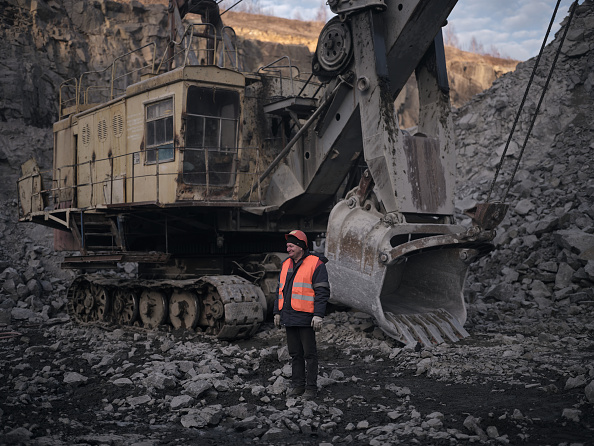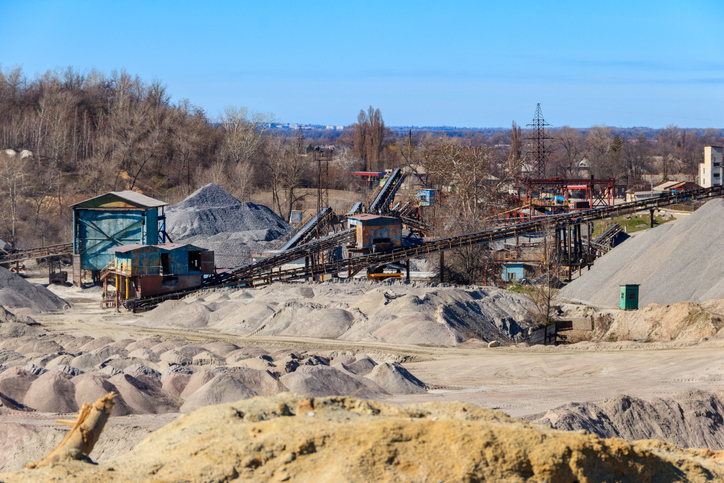A Belgian liberal party said it wanted to bring local mining back to Belgium to extract critical raw materials from European soil.
The intention was to reduce the European Union’s dependence on China and help the continent catch up in the race for electric vehicles, clean and defence technologies such as drones.
The proposal by the Belgian French-speaking liberal Reformist Movement (MR) party has sparked debate.
Belgium has no active mines today, but it was once a key producer of zinc and lead. It also processed cobalt, copper, bismuth and tin, metals now in high demand again. Most modern EV batteries rely on lithium, cobalt, nickel, manganese and graphite. Copper and aluminium have also become essential.
The EU has been left far behind in the competition for production of these elements. It now wanted more control over the materials needed for batteries, wind turbines and chips but imported the vast majority of these resources and most come from or through China.
“As most of the world, [Europe] is highly reliant on China for critical raw materials—especially rare earths. China dominates the market, with shares as high as 90 per cent or more for some,” Varg Folkman, analyst at the Brussels-based EPC think tank, told Brussels Signal on July 3.
“The EU has tried to diversify … but in many cases, especially for rare earths, there is no alternative to China.”
Even if Europe started digging, though, it still may not be able to compete. “It’s very hard to open a mine in Europe,” Folkman added.
“There are social and environmental constraints. Projects take decades and are hard to finance. And Chinese actors could dump prices to drive EU efforts out of the market.”
Charlotte de Montpellier, senior economist at ING Belgium, pointed to how China dominated through price. “China exports its excess production and deflation to its partners, including Europe. It sells at much lower prices, thanks to cheaper energy, lower wages and state subsidies.
“That’s how it takes market share,” she also told Brussels Signal on July 3.
Belgium has no known economic reserves left but supporters argued that new geological studies and modern mining techniques might reveal untapped potential.
The Jean Gol Centre, a Belgian think-tank, said it wanted Belgium to explore the possibilities, under strict environmental and social conditions.
In response, the EU was trying to strengthen its supply chains and as was often the case, using trade and partnerships agreement to do so.
Its 2025 agreement with Chile, a major source of lithium and copper, included sustainability rules and aimed to reduce over-reliance on Beijing.
But trade deals take time and even strategic partnerships would not build refineries in Europe overnight.
The Chile partnership was part of the EU’s Global Gateway strategy and aimed to build sustainable supply chains for key raw materials including lithium and copper.
Chile, for its part, has recently cut mining permit approval times by up to 70 per cent to attract foreign investment, giving the partnership a practical edge.
The EU’s effort to deepen ties with Central Asia in April this year specifically to secure access to the region’s critical raw materials, was another example.
That was why some voices have been calling for more protection and planning.
Stefan Scherer, chief executive of AMG Lithium, a division of a global critical materials company located in Germany, told The Guardian on July 2 that Europe’s dependence had gone so far that it “may as well be a province of China”.
The International Energy Agency agreed the challenge was systemic. In its recently published 2025 Outlook, it called for price stabilisation tools to make risky mining and refining projects bankable. Without them, Europe may keep losing to low-cost competitors like China and Indonesia, experts said.
The EU’s Critical Raw Materials Act set goals for more domestic sourcing and recycling. But analysts said Europe still lacked scale, co-ordination and industrial planning.
Many of the metals needed for clean energy were also used in defence and China was dominant there, also.
Europe did not need to mine everything at home but without serious investment, smarter incentives and long-term supply strategies, experts said it risked staying stuck at the mercy of others such as China.





